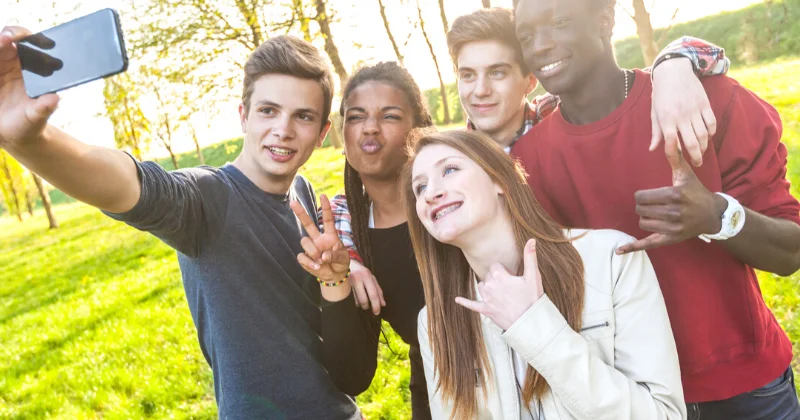There is a spectrum of social skills that are all the aspects for individuals to work and communicate together with others adequately. Verbal Communication, Body Language & Paralinguistic Clues, Empathy, Active Listening, Conflict Resolution ,Basically social skills for teenagers are the rudimentary foundation stones of many life arenas, such as having functional relationships with peers or any other relationship context.
This makes these skills paramount in becoming successful self-starters capable of interacting as part of a team at their own workplace when they are older.
Why Are Social Skills Important in the Teenage Years ?
Furthermore, adolescence is a time during which people start to structure their identity and emancipate themselves from the rest. Teenagers need social skills to navigate the intricacies of friendships, peer pressure, and newly forming romantic relationships.
Teens may find themselves with social anxiety, in isolation, and involved in more conflicts if they lack these life skills. Social skills also play a key role in education and emotional health by allowing teenagers to work together, explain their thoughts, and solve problems.
Important Teen Social Skills
Essential Social Techniques the Teenagers Need to Develop
Teens need to work on building core competencies in developing strong relationships, which include — meaningful communication, listening skills & conflict resolution, and empathy. Teens who have developed good communication skills are able to express themselves in an articulate and mature manner, while they can also actively listen — comprehending what others say from their point of view.
Empathy allows them to relate and identify with peers in a profound manner, which brings about mutual respect. Conflict resolution skills help manage inevitable disagreements so that people can get on with living together in peace and harmony.
What steps can teenagers take to improve their social skills?
Social skills take practice, feedback, and exposure to more social situations. Active participation in group interactions, open talks, and the provision of opportunities for active listening expression may help teens sharpen these skills.
Parents, teachers, and peers also enable teenagers to implement their social skills by encouraging them to get out of their comfort zones. By the same token, just as with all things in life, social immaturity is not immortal; much of it can be grown out of or learned from simply by living through experiences and making mistakes.
20 Social Skills Activities For Teens
Theater Participation
Encouraging teens to engage in acting provides a fantastic space for them to create and experiment with different roles, broadening their capacity for empathy as well as developing social interaction. They also gain the ability to express themselves freely as well as overcome stage fear by performing in front of an audience.
Also, when they put in a group effort to act out and produce a skit or play, it helps them build teamwork and the ability to cooperate while working together. The theater also teaches teens how to read cues of body language and tone, which are the most important forms of human communication.
Group Volunteer Projects
Volunteer projects that are done as a group can be especially great for teens in teaching them how to work with others and lead when they need it. Leading these types of projects can develop the need to collaborate, problem-solve, and work with people with different capabilities.
Gives the opportunity Teens to learn to have a good heart by volunteering, and the response received from others helps them appreciate diverse opinions and build empathy as well as acquire social responsibility. Activities like these also offer teens opportunities to further develop real-world communication and organizational skills.
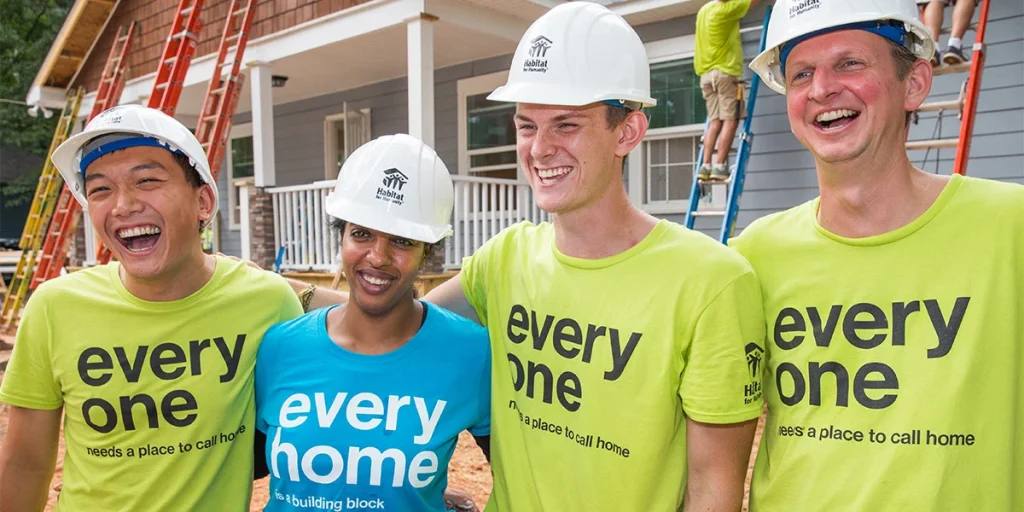
Debating Workshops
At debate workshops, teens can practice both speaking in public and thinking critically with solid arguments. These workshops are for participants to research numerous subjects, build arguments that make sense, and win them.
It also creates a healthy social and communication environment. Teenagers learn to respect their peers’ different thoughts, as well as the art of speaking constructively. This also supports them in getting more comfortable with their opinion and arguing for it under stress.
Team Sports
It helps teenagers learn teamwork, discipline, and forms of leadership. Team sports have a unifying and cooperative aspect as they bring the players together to play for the same team. Sports teach teens how to communicate with their teammates, healthy competition, and winning (gloating) losses.
Team sports also teach teens time and rule management, which are important life skills as well.
Art classes and workshops
In art classes, teens use their creativity through patience and focus to problem-solve. Aside from writing, some of the best teenage coping mechanisms involve creative output such as painting, sculpting, or crafting.
In fact, many of the projects done in these workshops are collaborations between students who work together and share ideas. During the creative process, teens are able to work through obstacles and hone their skills in order to foster self-esteem and perseverance.
Emotion Charades
Emotion Charades: This fun game has teens acting out different emotions for others to guess! It allows for increased self-awareness and the ability to be more present in others, allowing high emotional intelligence levels of communication.
They will enhance body language and facial recognition through the reading of emotions without verbal expression. But, this can be very useful in effective communication and empathy. The game also fosters teamwork and quick thinking, which is a good way to build social skills.
Role-Playing Games
RPGs are a vibrant way for teens to exercise social situations in a safe and controlled environment. That might sound terrible, but those games often required the player to play as different characters and make choices in a complex or ambiguous social context — all things that teens could easily empathize with through problem-solving by walking around.
They can be inside someone else’s shoes and observe two different perspectives on a specific situation. RPGs require planning and cooperation, leading players to strategize together in the virtual quest.

Scavenger Hunts
Scavenger hunts are a fun and interactive learning activity that relies on teamwork, collaboration, critical thinking skills, and communication. Scavenger Hunt: A competition where teens collaborate to piece together clues and locate hidden objects, encouraging teamwork and interactive problem-solving.
These hunts provide a good excuse for people to think at the last minute and be able to make quick decisions. Scavenger hunts can be fun and competitive, which means that they are a great way to develop camaraderie among teens.
Speed-Dating mit Gesprächskarten
Speed Dating with Conversation Cards (Adult)Along the way, I was introduced to this book and discovered that several of these same activities work for grown-ups. Speed dating in real life is interesting, too … but I digress. On each date, the volunteers talk to different potential matches for a few minutes at a time using prompts provided on cards.
This activity helps teenagers to be active in initiating discussions, asking questions, and providing detailed responses. It is a great way to begin interactions and build confidence in conversations with others. The time limit also brings in an entertaining, timing challenge factor into the workout.
Kindness Jenga
Kindness Jenga transforms the traditional game of wooden block stacking into a practice that sees players acting out various kind gestures each time they pull a piece from the stack. When you pull out the blocks, kids share or do something kind, which leads to empathy and good deeds.
This not only boosts socializing but also encourages teenagers to consider the aftereffects of their deeds on others. The game instills a culture of kindness and teamwork that helps participants acquire good social habits, which is beneficial for development in general.
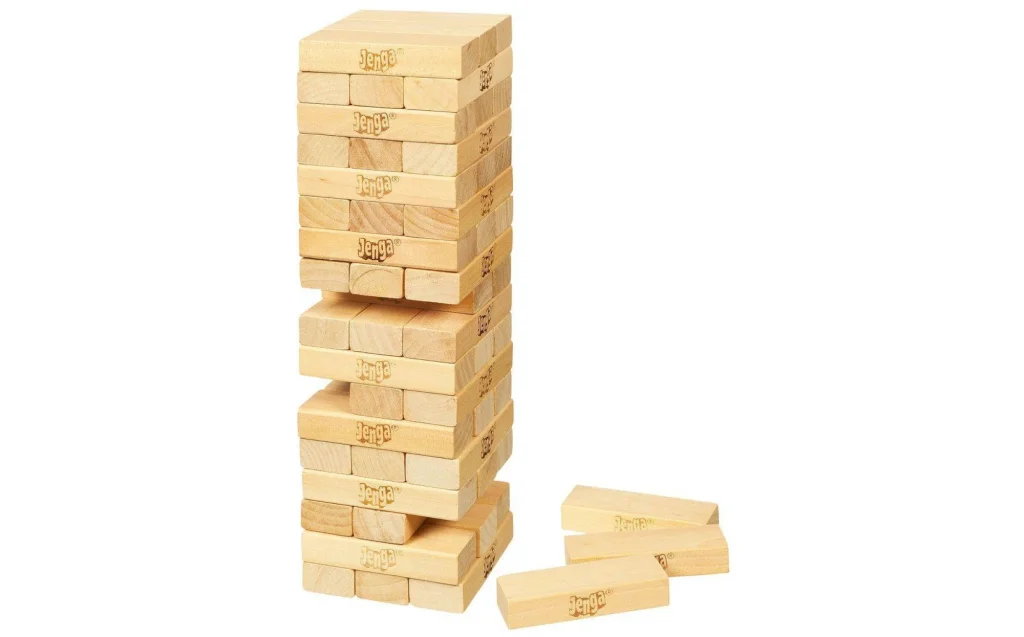
Mind mapping and self-awareness
Such an exercise of self-exploration and counseling activities can further help teenagers map their minds, organize thoughts, and reflect upon emotions as well as behavior. Not only does it help to visually map out thoughts and feelings, but the teens can also understand their thought processes better or identify areas in which they might need more personal growth.
They develop self-concept, a skill instrumental for emotional intelligence and seamless communication. The other best part about mind mapping is that it can keep you creative and enhance your problem-solving skills, which could be a valuable trait for both education and anything personal.
Bonfire Nights
Bonfire nights offer low-key, casual environments for teens to hang out in a way that encourages them to connect with other students. With low-distraction settings, teens can tell stories, play games, or sit around the fire and be with their friends in a respectful setting.
The very act of coming together allows for honest conversation and camaraderie. The other positive of bonfire nights is that it removes the pressures of daily life and gives teenagers an opportunity to chill out and talk on a more personal level.
Educational Field Trips
With social and educational field trips, teens can experience the world beyond their school walls while building a foundation of shared experiences to draw on as they develop socially. From exploring a museum, historical site, or science center — these tours instill an appreciation for curiosity and the scientific process.
Adolescents communicate with one another, comment on what they have learned, and share endeavors or a kind of venture several times. Field trips also allow adolescents to experience different social rules and communication practices, thus increasing their overall socio-emotional competence.
Acting and Drama Workshops
Acting and drama workshops are an excellent creative channel for teenagers to experience various emotions, situations, and characters. The workshops are aimed at getting participants fluent in both verbal and non-verbal communication and their teamwork skills.
Through improvisational and scripted performances, young teens develop the skills to ad-lib and speak well on their feet. It’s a great exercise for developing social skills as it teaches teens to see things from someone else perspective.
Healthy debates and discussions
Healthy debates and conversations help teens articulate their thoughts, listen to others attentively, and express themselves in a more civil fashion. By engaging in these activities, students learn how to think critically and create arguments from multiple perspectives.
Debating also allows teenagers to develop their public speaking and the ability to communicate complex ideas using clear language. Having guided conversations is how we establish respect and decency as the drivers of normal human relations.
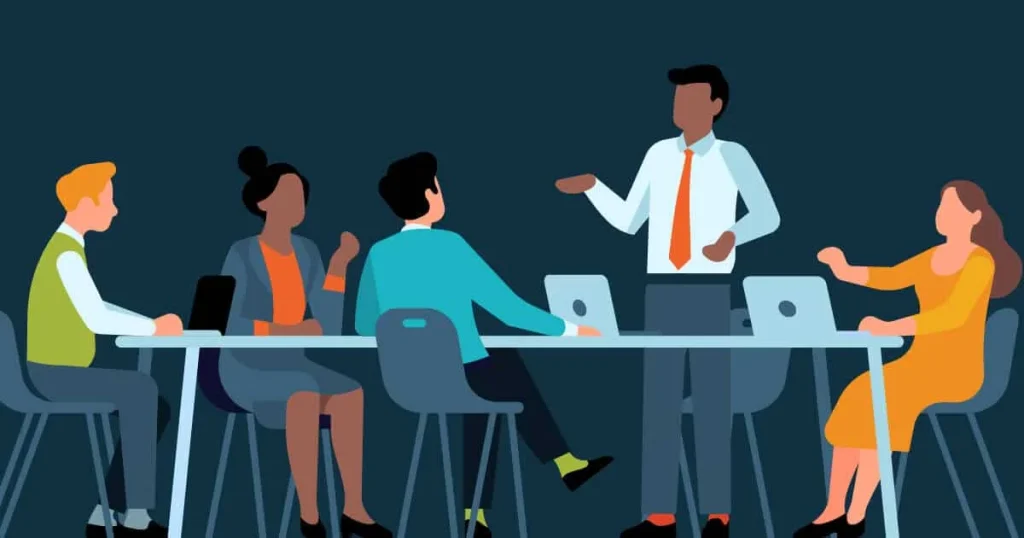
Improvisational Storytelling
Advise them to challenge themselves with improvisational storytelling, a fun exercise where teens build on an impromptu story one by one in order to fuel their creativity and refine their ability of quick thinking. It encourages creativity and collaboration, keeping in mind that every writer adds on to the story from where it left off.
Otherwise, the developed brain will learn straws and new ideas and lie out for the first thing, which is to be a story iferay. It also promotes teamwork and gives the children confidence in their gift to create something together.
Collaborative Story Writing
A collaborative story involves one group of people writing a section, then passing it on to the next, and so forth. The exercise is designed to boost writing, creativity, and team-building abilities, and it involves working in groups on a common idea.
It allows teenagers both to share their own thinking but also works simultaneously with learning how to support the thoughts of others. Through teamwork, they gain a sense of satisfaction and enhance their writing skills.
Music-Making and Rhythm Games
To develop music skills, HERE AND NAVI teaching aids will keep you engaged with several activities that are useful for teens who love to work as musicians or in rhythm games, which will be their alternative engagement of creativity expression.
Playing games that require syncing beats to create a song, using instruments, or just clapping hands in rhythm encourages coordination and teamwork. Since music has a universal appeal, it can bring like-minded teenagers together, irrespective of the genre.
Community Gardening
A type of activity is community gardening that gets teens involved in a natural, mutually-used setting doing tasks and jobs together with the end goal of raising plants or food. Kids will learn responsibility, patience, and how to work as a team over time while taking care of their garden.
Aside from improving the environment, it also teaches people how to take care of their natural surroundings and gives them a sense of achievement when they walk around town, seeing all the things that have changed or improved thanks to Rebuilding Together.
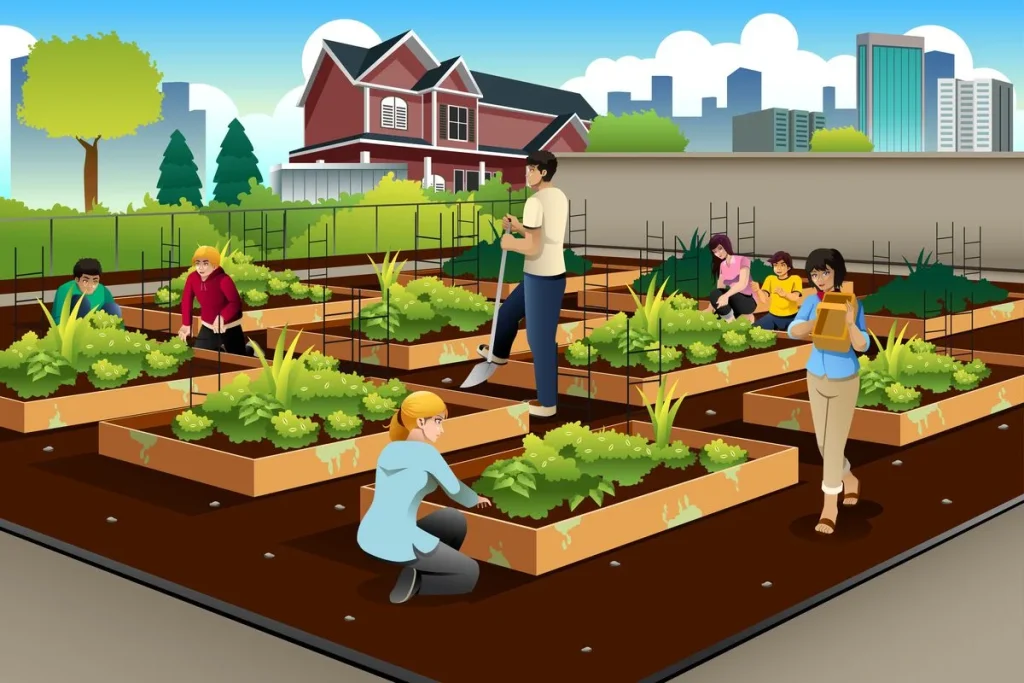
Game Nights
Game nights are a casual way for teens to hang out and bond. Playing board, card, or even video games can also be good for the teen’s strategic thinking skills and help them work as a team (or at least only yell profanity at people who deserve it rather than their parents) and be gently compared against other experienced players.
It also helps teenagers with social skills and it brings them together as people, which really makes group activities a lot easier for the shy or introverted teens to participate. Game nights foster communication, laughter and engagement that breed a feel good environment.
Human Knot Game
A physical teambuilding activity that requires cooperation, the Human Knot game is when teens need to work together to physically untie a “knot” of intertangled arms. This game fosters problem solving, communication and teamwork as players need to talk through the challenge before they can fix it.
A good way to develop a culture of teamwork, patience and cooperation as well get all the participants past that awkward stage. Another benefit of the Human Knot game is that it helps teenagers to trust their peers and work smoothly in a team environment.
Gratitude Exercises
Practicing-gratitude exercises are activities that help teenagers reflect upon and communicate their gratitude Some of these exercises might included writing gratitude journals, sharing positive experiences or creating art projects around both their own and community’s moments of gratitude.
Gratitude encourages a positive mindset in teens while improving their emotional well-being. It also helps develop empathy and creates stronger bonds as they experience the same support, love an kindness from everyone else. Practicing gratitude can be a potent way to support the mental health of teens and foster camaraderie among them.
Human Tic-Tac-Toe
Think of Human Tic-Tac-Toe like live-action tic-tac-to on a grid where the teens are X’s and O’s. Players must cooperate with their team to earn a win and work as one cohesive unit looking at the bigger picture. This activity calls for teamwork, strategic thinking, communication.
Physical and Mental Activities are an enjoyable, interactive way to get teenagers both moving in a physical sense as well as thinking together on their feet. The Human Tic-Tac-Toe board also fosters socialization and team working to strengthen teens relationships with peers. It is a nice way to combine social, mental, and physical aspects of the game.
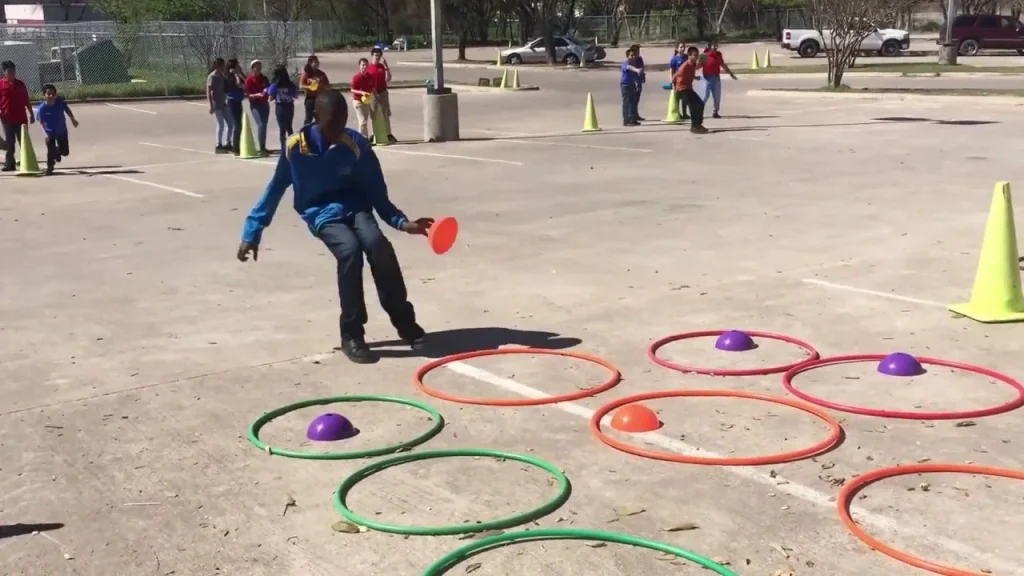
Hot Potato Game
Hot Potato is like a game of musical chairs where teens in the circle throw an object around and must get rid of it before the music stops. It helps in develpoing quick reflexes, coordination of hands and brain ansise the presure thinking. It adds a fun and competitive edge to social functions, making people laugh and compete against one another.
Since learning to respond gracefully is such an important social skill, playing The Hot Potato game from Youth Ministry Games as a way for your teens will learn how to handle winning and losing with grace. A surprisingly easy yet effective team bonding activity.
Freeze Tag
Freeze Tag is a high-energy outdoor game in which one player, who is “it,” tries to tag the other players and cause them to freeze. But it is a game of physical endurance that also requires strategy in teamwork and lightning-fast decision-making, as kids decide whether to dart forward promenading or flap their knees like sawed-off hammers.
Provides adolescents with physical activities that support teamwork and leadership. Classic Game: Freeze Tag — A fun and active game that promotes new friendships in the bush! Ideal for large groups and outdoor events
Mirror Game
Pairs of teens stand facing their partner, acting as either the leader (head) or mirror. The mirrors copy every movement performed by the leaders … It reflects concentration, observation, and a bit of non-verbal communication between the members as they will have to keenly monitor what others are doing.
Practice mirroring- this is a hilarious way to get kiddos moving but also fosters trust and empathy as the “mirror” has to mimic what their leader does. As a creative exercise, the Mirror Game can be relaxing and help improve social ties. This is perfect for a fun, playful way to practice being in the present and cultivating attention.
Newspaper Fashion Show
What is it? It is a newspaper fashion show in which teens will design and create outfits with nothing more than newspapers (and some other simple items)! It encourages creativity, teamwork, and problem-solving when people come together to make a unique fashion statement.
It also inspires self-expression and confidence as teenagers model their creatives in a playful, nonjudgmental atmosphere. The fashion show is the perfect way to mix art and socialization as teens bond over common creative hurdles. An inexpensive way to have fun while doing some team building and innovation.
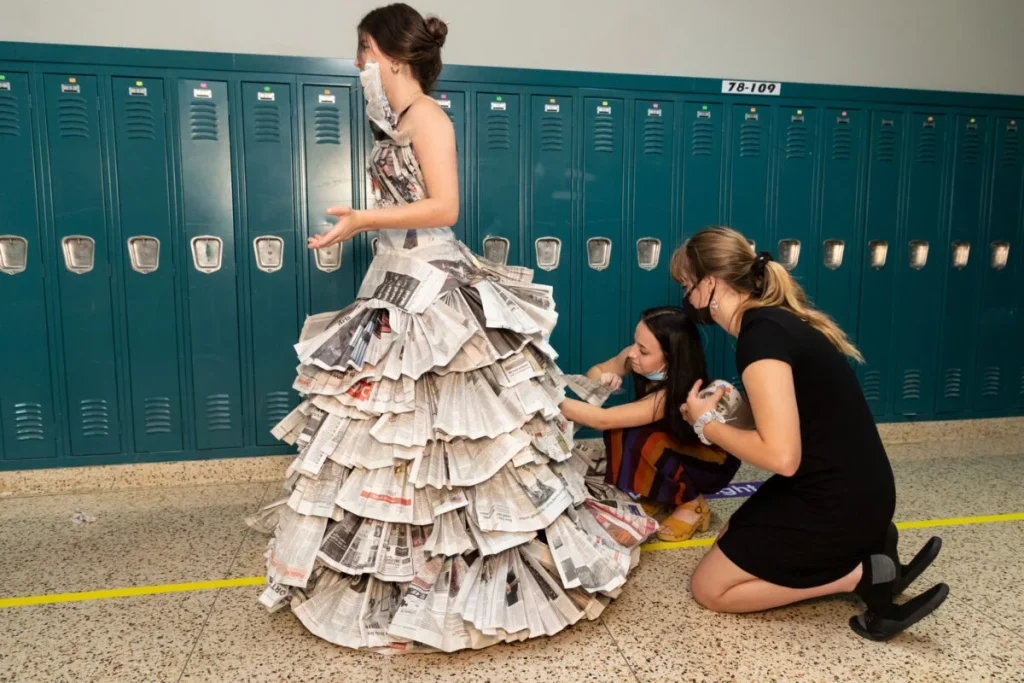
Human Sculpture
Human Sculpture is one activity where groups of youth create living ‘sculptures’ that represent a single idea, often referred to as the theme. Activities like this work on creativity, teamwork, and communication, as the kids will have to help one another in order to get their ideas off of paper.
It contributes to spatial memory processing and thinking out of a situation. The Human Sculpture project is a great example of an abstract, nonverbal exploration in a group format that touches on both art and social themes. And it’s a hands-on activity that gets teens working together in new, creative ways.
Telephone Skills Game
The Telephone Skills Game – Teens learn to communicate messages by passing a whispered word synchronously down a line of people. The melting…so to speak, of the original message before it reaches the very last person is a clear example in support of a reminder: COMMUNICATION and an EAR TO LISTEN are important.
This is a lighthearted but educational way of illustrating just how easily information can be misinterpreted. Additionally, The Telephone Skills Game definitely encourages teamwork, and the hilarious final message from round to round can cause laughter and connection among your team.
Creative Writing Exercises
Teen Creative Writing Exercises aim to help them use their imagination and pen down in the form of written words. With exercises that range from prompts and story starters to free writing sessions, these teens write … in a fun and supportive atmosphere.
It allows them to express their own thoughts, feelings, and ideas they are working through in that time of their lives. It also encourages reasoning skills and originality, two qualities central to active personal development. Creative writing practices give them a chance to promote confidence and develop mastery as teens start seeing their ideas on paper.
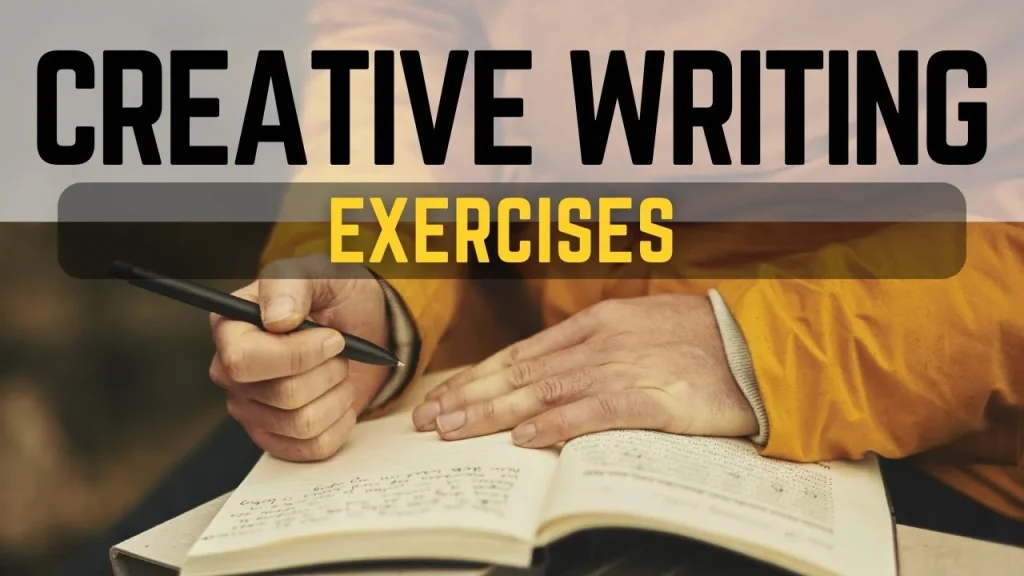
Social Skills Activities for Teens with Autism
Personalized Programs for Autism
Structured activities for adolescents with ASD, customized to their individual social skills and targeting these areas such as communication and interaction of self-control. They often feature structured routines, clear directions and even sensory friendly environments to help make teenagers feel at home.
These programs offer a positive and supportive learning experience that allow children to learn at their own pace by doing activities they love. The activities are personalized in order to also facilitate peer interaction — which can help build meaningful social relationships for teens with autism. These things are elemental to the nurturing of social confidence and independence.
Benefits of Social Skills Activities for Autism
- Better Communication: Social skills training assists teens with autism in creating better verbal and non-verbal communication, expressing themselves more clearly, and experiencing greater understanding when communicating socially.
- More Social Engagement: Promotes team playing to improve social skills and make friends in an organized setting.
- Improved Emotional Regulation: Techniques for dealing with emotions when in social situations, decreasing anxiety, and increasing emotional stability.
- Improved Confidence: As teenagers effectively negotiate social situations, they gain independence in a variety of social settings.
- Improved Understanding of Social Cues: This will assist children in identifying and responding to social cues, which include body language and facial phrases, making them learn the way to behave nicely.
- Fosters Empathy: Makes you appreciate other’s feelings, develop understanding & sustain better relationships with empathy.
- Lifelong Skill Support- Our teenagers develop vital social skills that they can take with them into adulthood, helping them position themselves better for success in various social situations.
How to Implement Social Skills Activities for Autism
When it comes to social skills activities for teens with autism, each activity will need careful preparation and unique specifications based on the child inside them. Set up an organized area that provides visual cues and step-by-step directions so participants know what to expect.
More specifically, when interests and strengths are integrated into the activities, it increases engagement while motivation stems from other places, e.g., Social needs such as The Theory of Erik Erickson, power like Maslow’s hierarchy with a combination of feelings both in belonging to friendship circle or desires for advancement as explained by McClelland motivated theory! I always say that the secret to learning good social skills and keeping them with you as teens turn into adults is practice.
H2 Tips for Socialize More of Teenagers
Promote Improved Listening and Communication
One way to improve teen social skills is by fostering active listening and communication. Teach them how to listen, share in the conversation, and maintain eye contact. You might find those role-playing scenarios to be useful when you pick up back and practice these abilities in a safe environment.
If you give them praise and soft correction in the moment, teens can practice those skills until they get it down. Supporting free communication and encouraging regular practice will make teenagers more confident, communicative individuals.
Role Of Parents And Teachers To Improve Social Skills
Family and teachers should strongly rear social abilities that are important in relationships, giving such skills the support needed for development in a safe environment. This includes being positive role models for social behaviors, giving feedback that is helpful, and providing a place where teens feel free to open up.
I would consider some serious group participation from a parent all the way to complete boringness as you want them to know they have take part in activities but it also assisted my daughter, Arielle develop social skills. When parents and teachers work together, they can provide a shared social learning experience that helps maintain healthy behavior at both home and school.
Using Technology to Improve Social Skills
This is what we believe technology can do when used as a tool to improve social skills and communication, especially for our teens that may be shy or lack confidence in face-to-face interactions. Social media platforms, apps, and online games can offer communication settings for cooperation and relationship building.
But you want teens that use technology responsibly and to support in-person interactions instead of replacing them. Teens can practice socialization by engaging in simulations of interactions using video chats, VR (virtual reality) and educational apps that enable them to interact with other kids, learn from the positive experiences shared about playing games online.
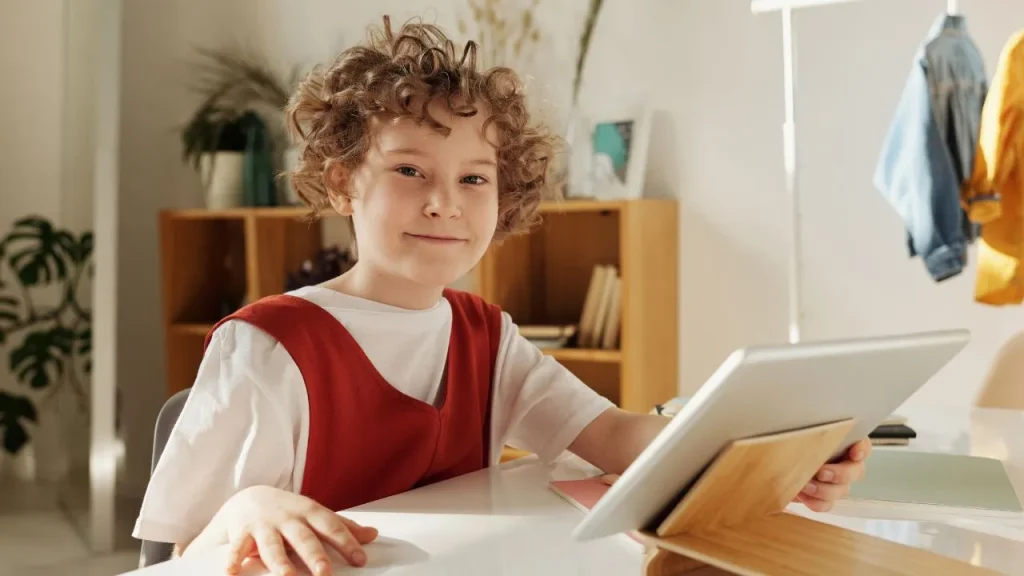
H2: How to Help Teenagers Lacking Social Skills
Signs of Social Skills Deficits in Adolescents
How to Recognize Social Skills Deficits During the Teenage While it can be hard to tell what is typical and therefore age-appropriate and shy versus a social skills deficit, some signs are that they struggle making friends, being in groups or read other teens facial/social cues.
Teenagers who have difficulty with communication skills may be shy in certain social scenarios or unable to make eye contact. Catch these signs as early as possible to get them the support and interventions that they need.
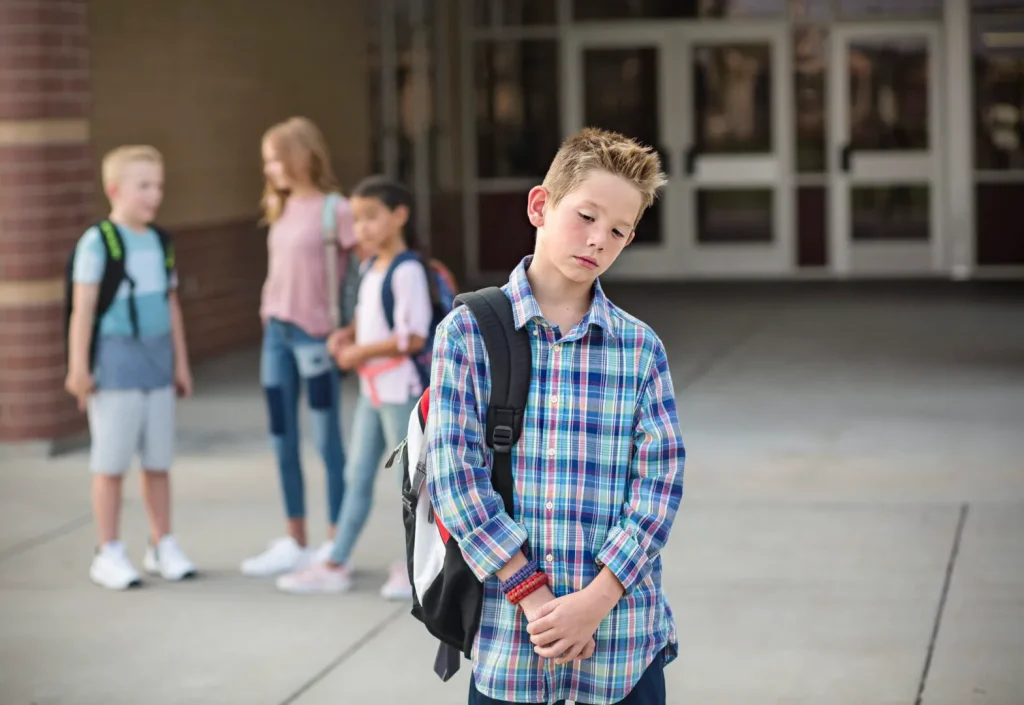
Steps to Support Teenagers with Social Challenges
- Helping these teens overcome their social limitations requires patience, encouragement, and specific interventions.
- Begin by setting up an environment that is conducive to start working on things like this, a place that feels safe and in which they do not fear being ridiculed for their awkward social conduct.
- Using structured activities such as group projects or guided social skills training Gradually introduce social situations, beginning with small groups and working up to larger settings.
- Offering them some positive reinforcement and celebrating the little victories can give your girl a confidence boost.
Conclusion
To sum up, developing social skills in adolescents is indispensable to their growth and ability to fulfill potential later on. Participating in varied social skills activities improves the communications, empathy and teamwork with confidence and resilience.
We do this by offering teenagers structured practice and support to assist them in making appropriate choices as they move through social environments with ease, grace, and kindness, putting their future best selves forward.
FAQs
What are social skills, and why are they important for teenagers?
Social skills are essentially what you need to interact with other people and a crucial part of growing up for all teenagers. These are skills like the ability to communicate, empathize, and cooperate with other people. For teenagers, they are important as adolescents explore their relationships with a variety of people in various social settings and help them grow physically into men or women.
Why Social Skills Activities for Teens with Autism Work?
Those social skills activities specific to teens with autism provide the structure and cues necessary for students on the spectrum in order that they improve their communication, emotional regulation through self-advocacy and positive body language while participating.
How do parents and teachers help in supporting social skills development amongst teenagers?
Parents and teachers both have a special responsibility to model socially acceptable behaviors as well as provide appropriate cues if needed teaching teens social skills.
In what ways can technology aid adolescents with social skills?
To better support people on the spectrum as they work to develop these skills in a practical and relevant manner, one can turn to an array of technologies that provide modules like social skills apps for communication or virtual simulations offering practice opportunities.
How to tell your teen might be struggling with socializing?
This can manifest as having trouble making or maintaining friendships, avoiding social situations, misunderstanding nonverbal behavior of others (like body language), and feeling nervous in group environments. By identifying these signs early, you can intervene with social skills activities and supportive interventions.

Russell F. Jones, holding a Master in psychology from the University of Florida. He writes for Smart Parent Solutions, offering practical advice on parenting and child development. His engaging content helps parents navigate family life with confidence and ease. Russell enjoys sharing his knowledge and spending quality time with his family.
